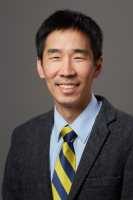
24 Jul Higher Socioeconomic Status Linked to More Use of Complementary Medicine
MedicalResearch.com Interview with:
James Yu, MD, MHS
Director of Yale Medicine’s Prostate & Genitourinary Cancer Radiotherapy Program
MedicalResearch.com: What is the background for this study?
Response: We previously investigated alternative medicine (therapy used instead of conventional medicine) and showed its use (vs. non-use) was associated with an increased risk of death, but we did not investigate complementary medicine (non-medical therapy used in addition to conventional medicine). Approximately two-thirds of cancer patients believe CM will prolong life and one-third expect it to cure their disease despite lack of evidence to support this.
MedicalResearch.com: What are the main findings?
Response: Patients who were younger, female, those with breast or colorectal cancer, resided in the Intermountain and Pacific West, resided in areas of higher socioeconomic status and education, with private insurance, stage I and III disease; and lower numbers of other comorbid illnesses were more likely to therapy complementary therapy.
Complementary medicine was associated with refusal of conventional medical cancer treatment. Because of this refusal of treatment, complementary medicine was associated with 2-fold greater risk of death compared to no complementary medicine use. Patients who underwent complementary therapy and did not refuse conventional medical cancer treatment, did not have a higher risk of death.
MedicalResearch.com: What should readers take away from your report?
Response: It is important that patients who undergo complementary therapy also undergo conventional medical therapy – and not use complementary therapy as an excuse to refuse recommended medical care.
MedicalResearch.com: What recommendations do you have for future research as a result of this work?
Response: More research is needed into the impact and efficacy of complementary therapy on life saving medical care. Caregivers should be aware that patients who undergo complementary therapy are more likely to refuse conventional cancer treatment, and so may require extra support and counseling to help them make an informed medical decision.
Citation:
[wysija_form id=”3″]
[last-modified]
The information on MedicalResearch.com is provided for educational purposes only, and is in no way intended to diagnose, cure, or treat any medical or other condition. Always seek the advice of your physician or other qualified health and ask your doctor any questions you may have regarding a medical condition. In addition to all other limitations and disclaimers in this agreement, service provider and its third party providers disclaim any liability or loss in connection with the content provided on this website.
Last Updated on July 24, 2018 by Marie Benz MD FAAD

